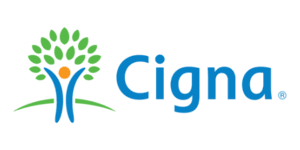Apex Recovery provides a tailored approach to heroin detox and rehab, supporting patients with a range of personalized services. We accept health insurance from many major providers, including Aetna, Ambetter, Cigna, Blue Cross Blue Shield, United Healthcare, Humana, and others. For those without insurance or looking for flexible payment options, we also provide private pay alternatives. At Apex Addiction Recovery, we’ll provide individualized heroin detox and rehab programs designed to meet your needs, such as private inpatient medically supervised detox, delivered in a clean and modern drug rehabilitation center with a warm and welcoming atmosphere. Our drug addiction recovery programs focus on evidence-based care, holistic recovery methods, and continuous clinical support from highly qualified staff. Located to provide support to the communities of Nashville, Memphis, Knoxville, Clarksville, and Murfreesboro, our licensed and accredited drug and alcohol facility is here to help guide you toward lasting recovery with care and expertise.
If you’re interested in residential drug or alcohol addiction rehab and want to understand how health insurance can help cover your substance abuse treatment, we’re here to provide all the information you need. Contact us today for understanding guidance and to explore how our services can make recovery possible for you or your loved one. Call us at (877) 881 2689 to take the first step.
What is Heroin Use Disorder?
Heroin use disorder happens when someone regularly misuses heroin, leading to both physical dependence and strong psychological cravings. It often causes serious health problems, strains relationships, and makes it hard to stop using the drug, even when it’s clearly causing harm.
Heroin addiction, a form of substance use disorder, impacts the brain’s reward system, making recovery without support challenging. With proper heroin addiction treatment options, including detox programs and evidence-based therapies, people can overcome this condition. Rehabilitation treatment for heroin use disorder often involves a combination of medical care, behavioral therapy, and aftercare to achieve lasting recovery.

What is Heroin Addiction Rehab?
Heroin addiction rehab is a structured program designed to help people overcome heroin dependence through medical care, therapy, and support. Such programs typically include detox, counseling, and strategies to manage triggers and cravings, empowering people to build a healthier, drug-free life.
Heroin rehab programs often focus on evidence-based addiction treatment, combining medical detox with behavioral therapies and holistic care. Heroin abuse recovery programs may include inpatient rehab, outpatient support, and aftercare planning to promote long-term recovery. By addressing the physical, emotional, and social aspects of addiction, these recovery programs provide a wide-ranging path to overcoming substance misuse.
Popular Cities in the Volunteer State for Heroin Addiction Recovery
Most health insurance providers commonly offer coverage for heroin addiction recovery services across Tennessee. This helps open the door to quality care for those seeking help within the state, whether through inpatient or outpatient heroin treatment programs designed to address substance addiction. With dedication, people can find the support they need to make progress.
Apex Recovery offers private residential addiction treatment for inpatient and outpatient substance abuse facilities across Tennessee, creating a supportive environment for recovery. With licensed, evidence-based treatment options and accredited services, Apex Recovery highlights wide-ranging care for people struggling with heroin addiction. Our heroin rehabilitation facilities provide a modern and welcoming atmosphere that reflects our commitment to quality and comfort.
Whether you’re in Nashville, Memphis, Knoxville, Chattanooga, Clarksville, Murfreesboro, or any other city, Apex Recovery accepts heroin rehab insurance. Our focus on an accessible and reliable treatment makes sure people across Tennessee can begin their recovery process with confidence and support.
How to Find a Heroin Addiction Treatment Facilities Near Me That Take Health Insurance
Finding a reliable heroin addiction treatment facility that accepts health insurance is important for making the process easier to reach the care you need. The right heroin addiction treatment center can assure meaningful recovery services while helping you manage costs. Consider the following steps to locate a facility near you:
- Search Online for Heroin Rehabs: Use online tools and directories to find nearby heroin rehabs. Keywords like “heroin addiction treatment near me” and “rehab centers that accept insurance” can help narrow down your options.
- Check Facility’s Accreditation and Reputation: Make sure the addiction facility is accredited by credible organizations and check online reviews or testimonials. A strong reputation often reflects the quality of care and success rates of their programs.
- Ask about their Heroin Addiction Treatment Programs: Contact the facility to inquire about their specific heroin addiction programs. Discuss available therapies, support groups, and how they tailor treatments to meet individual needs.
- Contact Apex Recovery Center Directly: Apex Recovery offers expert support in verifying your insurance and connecting you to clear, tailored treatment options. Reach out to discuss how they can make the process straightforward and provide thoughtful care for your recovery.










Contact Apex Recovery Tennessee to check your insurance coverage levels and discuss your treatment needs.
Does Insurance Cover Heroin Detox?
Yes, health insurance does typically cover heroin detox as part of addiction treatment services. However, the extent of heroin detox insurance coverage can vary depending on your health provider, specific plan, and eligibility requirements. It’s important to review your plan or talk with experts to understand what is included in coverage.
Apex Recovery can help you identify your heroin addiction treatment coverage for heroin detox services. Our qualified team works with major health insurance providers to verify benefits and make the process as easy as possible. Contact us today at (877) 881 2689 to learn more about how we can support your recovery and insurance cover for heroin addiction treatment.
Does Insurance Cover Heroin Rehab?
Yes, health insurance for rehab generally covers heroin rehab as part of a detailed addiction treatment. However, the level of heroin addiction treatment coverage can differ based on your health insurance provider, plan type, and specific policy details. Going over your insurance coverage or seeking advice from experts is essential to understand what’s included.
At Apex Recovery, our caring team is here to guide you every step of the way in understanding your heroin rehab coverage. We work closely with major insurance providers to verify benefits and simplify the process for you. Contact us at (877) 881 2689 to learn more about your options and how we can support your path to recovery.
Heroin Rehab Centers in Tennessee That Accept Health Insurance
Apex Recovery aims to deliver care that is both accessible and of high-quality for heroin addiction through multiple heroin rehab centers that accept insurance across Tennessee. As each location takes health insurance, it makes the process of receiving heroin addiction treatment easier and you can focus on your recovery. Here are the Apex Recovery centers in Tennessee where you can access care:
- Apex Recovery Brentwood: 209 Ward Circle, Brentwood TN, 37027
- Apex Recovery Columbia: 2710 Trotwood Ave STE A & B Columbia, TN 38401
Fill in the form below to request a call back from Apex Recovery Tennessee
Types of Insurance Plans That May Cover Heroin Addiction Treatment
Various health insurance plans may offer coverage for heroin addiction treatment, but the level of insurance coverage depends on the type of plan and its type of benefits. Understanding your insurance plan can help you decide on the care you need for recovery. Here are some common types of insurance plans that may provide coverage:
- Private Health Insurance: Many private insurance plans deliver thorough heroin addiction treatment coverage, often including detox, rehab, and aftercare services.
- PPO Plans: Preferred Provider Organization (PPO) plans provide flexibility to access both in-network and out-of-network providers for heroin addiction care.
- HMO Plans: Health Maintenance Organization (HMO) plans typically cover addiction treatment services but require the use of in-network providers for coverage.
- POS Plans: Point of Service (POS) plans combine HMO and PPO features, offering in-network coverage and partial benefits for out-of-network care.
- Employer Group Plans: Employer-sponsored insurance plans typically include substance abuse treatment benefits, helping employees access drug addiction rehab and recovery services.
Health Insurance Providers That Cover Heroin Use Disorder Rehab in Tennessee
Major health insurance providers such as Ambetter, Cigna, Blue Cross Blue Shield, and United Healthcare provide coverage for heroin use disorder rehab in Tennessee. Such providers make sure that people are able to access necessary treatment services, including detox, inpatient care, and outpatient programs, supporting patients on their recovery journeys.
Additional insurance providers like Aetna, Humana, Anthem, Magellan Health, and Molina Healthcare also offer heroin addiction treatment coverage for rehab services across Tennessee. Each provider has their own exclusive plan options and benefits, making it significant to review your specific policy for a clear understanding of what’s included in the coverage.
Verifying coverage details is an essential step in being able to access heroin rehab services. At Apex Recovery, we make this process easier by helping people understand their insurance benefits and guiding them to the care they deserve. Contact us for expert guidance on navigating your insurance plan for heroin addiction treatment.

How Much Does Heroin Rehab Cost in Tennessee Without Health Insurance?
The cost of heroin rehab in Tennessee without health insurance typically ranges from $25,000 to $78,000 per month. This breaks down to approximately $830 to $2,600 per day for inpatient residential addiction treatment services, highlighting the financial importance of considering insurance or alternative payment options.
If you have health insurance, it may cover some of the expenses linked with heroin rehab. To further understand your benefits and options, contact Apex Recovery Tennessee. Our experienced team can help you verify your coverage and guide you through the financial aspects of your treatment.
For those without health insurance, Apex Recovery provides personalized guidance to explore private pay options that meet your treatment needs. Give us a call today at (877) 881 2689 to discuss your situation and learn more about how we can make recovery accessible and manageable for you.

Check Your Coverage for Heroin Addiction Rehab
Apex Recovery provides heroin addiction rehabilitation services designed for your comfort and recovery. To smooth out the process, Apex Recovery can verify your insurance coverage levels on your behalf, giving you access to understand what is covered and helping you focus on your healing journey.
Types of Heroin Addiction Treatment Services Covered by Health insurance
Health insurance often provides coverage for a variety of heroin addiction treatment services, making it possible for people to access the care they need. Heroin addiction treatment services include options such as inpatient rehabilitation, outpatient programs, medically supervised detox, and specialized counseling to meet a wide range of recovery needs. Below are the primary treatment services commonly covered.
Inpatient Residential Heroin Rehabilitation
Inpatient residential heroin rehabilitation provides a structured and intensive treatment environment where people can mainly focus on their recovery. Included in these programs are 24/7 medical care, therapeutic activities, and personalized support to thoroughly address addiction, away from external triggers and distractions.
Health insurance for rehab often covers a considerable portion of inpatient care, helping to offset the high cost of such programs. This makes it easier for people to receive high-quality support in a safe and comfortable heroin rehabilitation facility designed to promote long-term sobriety.
Medically Supervised Heroin Detox
Medically supervised heroin detox is an important first step in recovery, providing people with professional care while managing withdrawal symptoms in a safe manner. This process includes continuous medical monitoring, symptom relief, and psychological support to deal with the physical challenges of heroin dependency.
Insurance plans frequently cover detox services as part of an extensive treatment approach. Access to this care allows patients to engage in detoxification under the supervision of medical professionals, reducing health risks and facilitating a smooth transition into further treatment.
60-Day, 90-Day and Long-Term Heroin Rehab Programs
60-day, 90-day, and long-term heroin rehab programs give different levels of care designed to address the intensity and duration of addiction. Heroin rehab programs provide extended treatment durations, allowing people to focus deeply on recovery and secure lasting skills to maintain sobriety.
Health insurance may cover diverse lengths of stay depending on individual policies and medical necessity. Patients can work closely with their treatment providers to identify the best program duration and receive financial guidance about their coverage options.
Residential Heroin Rehab with Dual Diagnosis Support
Residential heroin rehab with dual diagnosis support addresses both addiction and co-occurring mental health disorders, such as anxiety, depression, or PTSD. This integrated approach makes sure patients receive holistic care that targets all contributing factors to their condition.
Many health insurance plans cover dual diagnosis treatment because they understand how important it is to treat mental health issues alongside addiction. This kind of support helps people work toward a well-rounded recovery and get back on track in every part of their lives.
Outpatient and IOP for Heroin Addiction Recovery
Outpatient programs and Intensive Outpatient Programs (IOPs) allow people to continue recovery while living at home. Options like these offer flexibility with structured therapy sessions, skill-building activities, and group support to help patients maintain sobriety and balance their daily responsibilities.
Most insurance providers cover outpatient and IOP services, allowing people to have more affordable treatment options. This shows that recovery is not only effective but also accessible, regardless of financial or scheduling constraints.
Heroin Addiction Counseling and Therapies
Counseling and evidence-based therapies, such as Cognitive Behavioral Therapy (CBT) and group therapy, play a vital role in heroin addiction recovery. CBT and group therapy can help people address underlying emotional and psychological factors associated with addiction while building strategies for relapse prevention.
Health insurance typically includes coverage for personal counseling and therapy sessions. This access to professional guidance is a key component of recovery, providing patients with the tools needed for self-awareness and long-term change.
Apex Recovery accepts health insurance for heroin addiction rehab. Contact us to check your coverage levels and discuss your treatment needs.
Getting Health Insurance to Pay for Heroin Addiction Treatment
Understanding your health insurance policy is a crucial step in identifying coverage for heroin addiction treatment. Review your plan’s inclusions and exclusions, focusing on heroin rehab services. Reach out to your insurance provider directly for clarity on deductibles, copays, and other details related to addiction treatment coverage.
At Apex Recovery, we understand how overwhelming the process of starting treatment can feel. That’s why we’re here to make it easier for you. Our understanding team is ready to assist with insurance verification and benefits review, reassuring your access to the care you deserve. We’ll walk with you every step of the way, guiding you through the financial and administrative details so you can focus on what truly matters – your healing. Reach out to Apex Recovery today, and together, we’ll take the first steps toward your recovery.
Statistics on Heroin Use Disorder and Addiction Treatment in Tennessee
- Residential treatment programs have been shown to significantly reduce substance misuse and dependence, with long-term benefits such as higher employment rates and lower crime rates.
- The Affordable Care Act has expanded access to substance use disorder treatments, including heroin addiction programs, by mandating insurance coverage for these services.
- Approximately 70,000 Tennesseans are addicted to opioids, including heroin, emphasizing the need for accessible treatment options.
- Approximately 70,000 Tennesseans are addicted to opioids, including heroin, highlighting the scale of the opioid crisis in the state.
- In Tennessee, 1.9% of the population has an opioid use disorder, including heroin addiction, with private residential rehabs like Apex Recovery offering comprehensive, evidence-based treatment programs.





